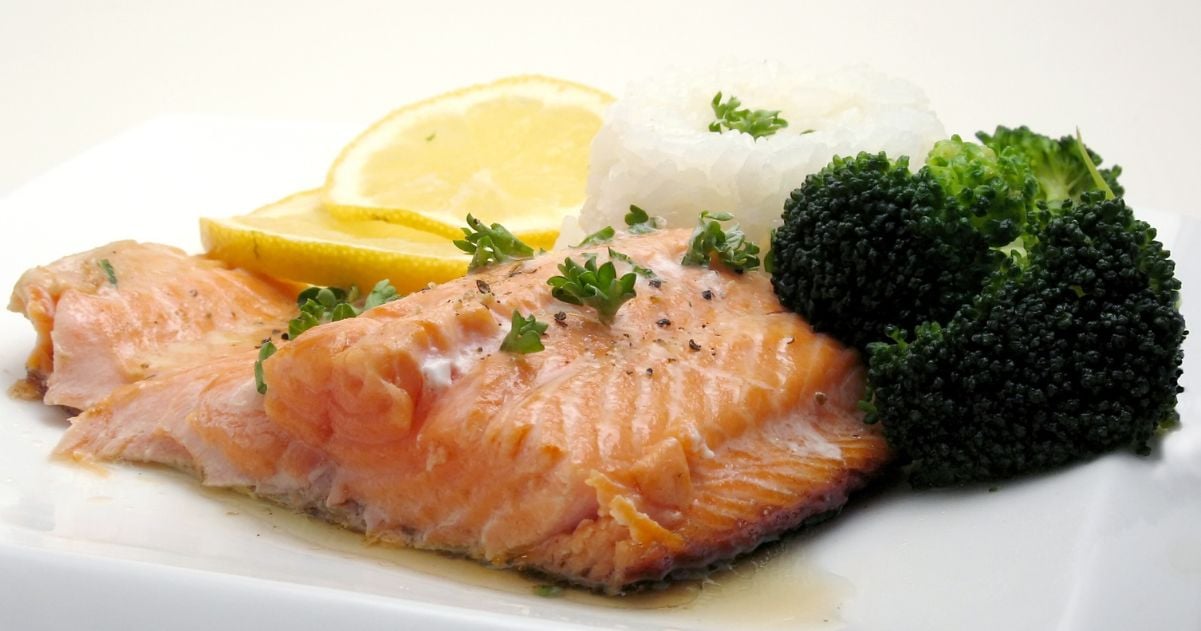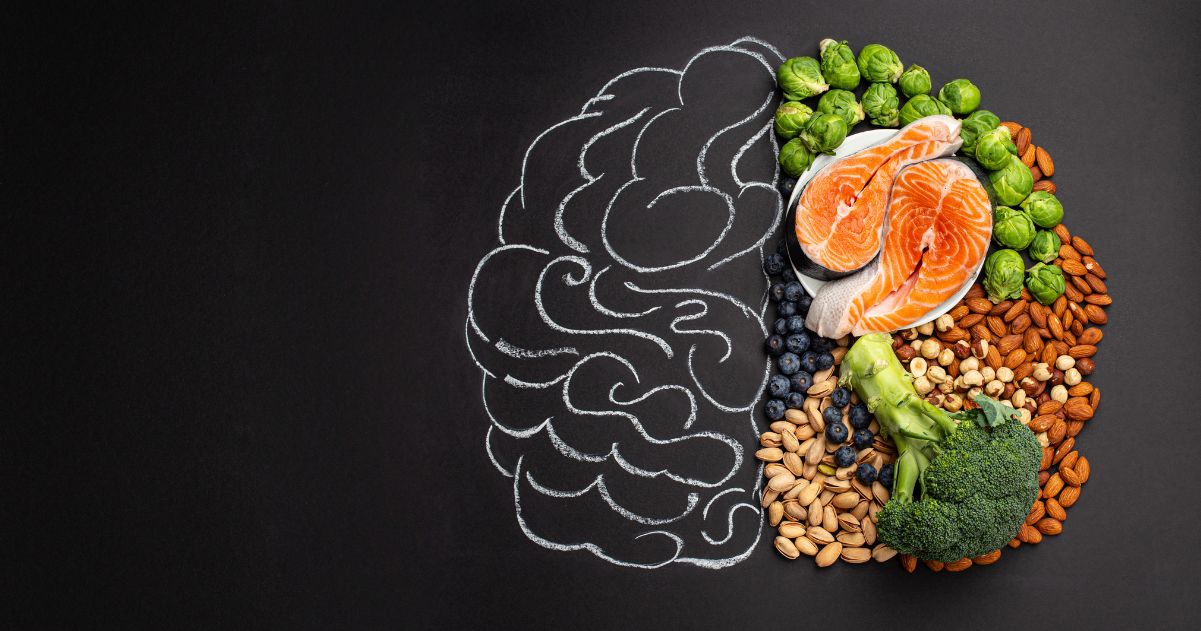Better brain health might be as close as a visit to your kitchen. A combination of two popular diets, the MIND diet seeks to reduce the risks of Alzheimer’s and delay cognitive decline. Developed by nutritional epidemiologist Martha Clare Morris and her colleagues, the MIND diet (short for Mediterranean-DASH Intervention for Neurodegenerative Delay) includes the brain-healthy foods found in both the Mediterranean and DASH diets.
How Are the Mediterranean and DASH Diets Combined to Form the MIND Diet?
Touted for its anti-inflammatory properties, as well as its effectiveness in reducing the risk of cancer and cardiovascular disease, the Mediterranean diet is more an eating style than an actual diet. Taking its cue from the cuisines found along the Mediterranean coast – Italian, Greek, French, and Spanish – the diet features fresh fruits and vegetables, whole grains, lean protein, and healthy fats.
The DASH diet (short for Dietary Approaches to Stop Hypertension) seeks to lower blood pressure through diet, rather than medication. Limiting the amount of sodium and consuming foods rich in potassium, calcium, and magnesium are central to the DASH diet. Similar to the Mediterranean diet, the DASH diet includes plenty of fresh fruits and vegetables, as well as whole grains and lean protein.
How Does the MIND Diet Help Improve Brain Health?
Does the MIND diet work? Although scientists and nutritional epidemiologists don’t fully understand how the diet works to promote better cognitive function, research exploring its effectiveness has been encouraging.
One study suggests that following the MIND diet may reduce the risk of developing Alzheimer’s disease by as much as 53%. Even better, benefits were still seen when the diet was only partially followed – great news for those who need more flexibility with their meals.
Research currently shows that the healthy fat consumed under the MIND diet guidelines may help maintain brain cells and their connectivity. Reducing bad fat and sugar in your diet may decrease amyloid-beta deposits, the plaques in the brain that are associated with Alzheimer’s.
Additional benefits of the MIND diet include the following:
- Reduced inflammation
- Decreased risk for heart disease
- Lowered blood pressure
- Increased (good) HDL cholesterol; decreased (bad) LDL cholesterol
- Better prevention or control of diabetes
What Foods Can You Eat on the MIND Diet?
The MIND diet is relatively simple to follow. Rather than a rigid meal plan, the diet encourages you to eat more of the foods that benefit brain health, and offers the following guidelines:
- Seven servings per week of leafy green vegetables like kale and spinach
- Five ½-cup servings per week of berries like blueberries, strawberries, and raspberries
- Whole grains, as well as non-leafy vegetables daily
- Nuts most days and ½-cup of beans every other day
- Two or more servings of poultry per week
- Extra-virgin olive oil, two single-tablespoon servings each day, replacing your cooking oil or butter
- One or more serving per week of fatty fish like salmon, trout, tuna, and mackerel
- One glass of wine per day – optional
Related: How to Successfully Maintain a Special Diet in a Senior Living Community >>
What Foods Should You Avoid on the MIND Diet?
There are five foods the MIND diet encourages you to limit:
- Butter and margarine – replace with extra-virgin olive oil and limit to two single-tablespoons per day when cooking
- Cheese – two single-ounce servings per week
- Red meat and meat products– beef, pork, lamb, sausage – three servings per week
- Fried food – one serving per week
- Pastries and sweets – four servings per week
Don’t become frustrated if you have trouble meeting the guidelines listed above. Individuals who partially followed the MIND diet still saw improvements in brain health – though not as much as those who followed the guidelines rigorously.
Related: Simple Mediterranean Diet Recipes You Can Prepare at Home >>
MIND Diet Meal Ideas
Breakfast
- Smoothie: Use your favorite berries – strawberries, blueberries, raspberries, or blackberries, and toss in some spinach or kale. This recipe from Eating Well magazine includes strawberries, kale, and peanut butter.
- Greek Yogurt Parfait: Layer low-fat Greek yogurt with chopped walnuts and fresh berries.
Lunch

- Turkey Pita: Stuff a whole wheat pita with roasted turkey, lettuce, and tomatoes. Serve with carrots and hummus on the side.
- Tossed Salad: Choose your favorite greens (spinach or kale), and include plenty of fresh vegetables like carrots, bell peppers, mushrooms, tomatoes, chickpeas and cucumbers. Dress with extra-virgin olive oil.
Dinner

- Salmon: Either grill or roast salmon. Serve with roasted broccoli or Brussels sprouts, and brown rice or quinoa.
- Pasta: Serve whole wheat pasta with sautéed chicken and marinara sauce. Include roasted broccoli and a tossed salad on the side.
Visit Everyday Health’s website for additional recipe ideas.
Explore Additional Health & Nutrition Resources
Find additional health and nutrition resources in our blog. You’ll discover the health benefits of a plant-based diet, learn what foods to eat if you have arthritis, and get six heart-healthy tips.








